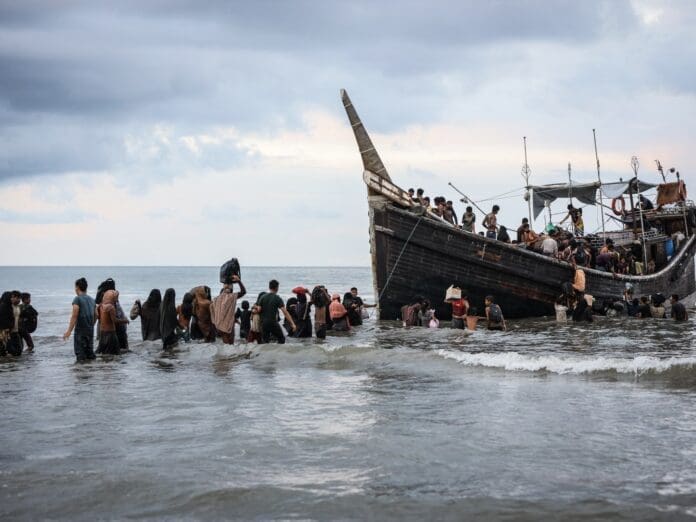Members of the mostly Muslim minority in Myanmar are continuing to take dangerous journeys across the sea in search of safety. Last year, 569 Rohingya people died or went missing at sea – the highest number since 2014. The UN High Commissioner for Refugees (UNHCR) reported that nearly 4,500 Rohingya people fled Bangladesh’s overcrowded refugee camps or persecution in Myanmar by embarking on treacherous boat journeys across the Andaman Sea and Bay of Bengal in 2023.
UNHCR spokesperson Matthew Saltmarsh stated that one Rohingya was reported to have died or gone missing for every eight people attempting the journey, making it one of the deadliest stretches of water in the world. Since the brutal crackdown by the Myanmar military in 2017, hundreds of thousands of Rohingya people have been living in overcrowded refugee camps in Bangladesh. In Myanmar, those who remain are mainly confined to camps in Rakhine State with strict restrictions on their movement and daily lives.
The situation has led to tragic incidents at sea, with hundreds of Rohingya people landing on Indonesia’s Sumatra island in barely seaworthy boats, only to be turned back out to sea by villagers and the military. Others have been feared to have drowned after their boats sank in the Andaman Sea. In December, a mob in Banda Aceh demanded that dozens of Rohingya refugees be deported, highlighting the suffering and lack of acceptance faced by those seeking safety.
The UNHCR has called for a comprehensive regional response to the boat journeys and urged governments to save lives and rescue those in distress at sea. Many Rohingya refugees hope to make it to Malaysia, which is currently home to nearly 108,000 Rohingya refugees. However, like Indonesia, Malaysia is not a signatory to the UN Convention on Refugees, leaving those who live in the country at risk of harassment, detention, or deportation.
